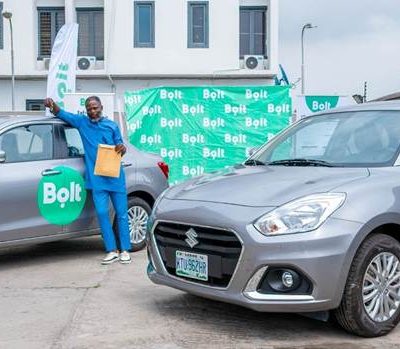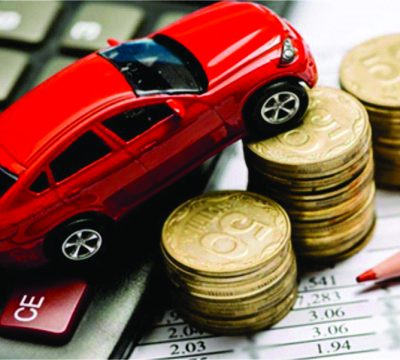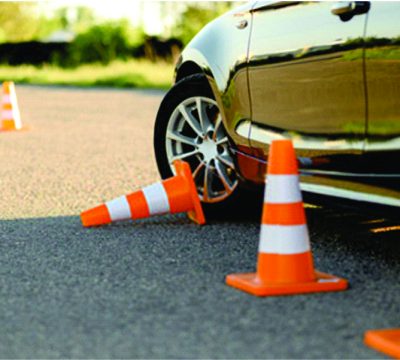How to Register a Car in Nigeria: Step By Step Guide

There are different things to put into consideration when trying to register a car in Nigeria, whether new car, tokunbo car or foreign used car. Although this vehicle registration process might be difficult for many who do not have the patience, however you can always get a professional agent to get it done for you in no time.
Like in other developed and developing countries around the world, one must register his/her car before use in Nigeria too. Else, the person would risk getting it impounded by Law Enforcement Agencies such as the Police, Federal Road Safety Corps, LASTMA, etc., as it is against the Nigerian traffic rules and regulations to drive unregistered vehicles on public roads.
In this article, you will be learning the procedures and the laws guiding vehicle registration in Nigeria. The agency charged with the registration of vehicles in Nigeria is the F.R.S.C (Federal Road Safety Corps). Nevertheless, registration of vehicles in Nigeria isn’t an easy process as the country is one of the highest users of cars in the world.
Thus, there is usually an endless queue of applicants waiting at the FRSC offices. Imagine the frustration of having to return to the office repeatedly because of not having all the documents needed for the registration of your car. Therefore, below are the documents necessary for Vehicle registration in Nigeria.
Documents Required To Register a Car In Nigeria
#1. Letter of attestation: –
This is a document that will show verification. In this case, a letter of attestation will confirm that the subject matter is true. This is the first step to take when starting your vehicle registration in Nigeria.
#2. Receipt of purchase or invoice: –
This is a legal document stating the item (vehicle), the price, and description of the item. Everything bought must be recorded and documented with either of these two binding documents. This can be as simple as nothing, but if this is not provided at the point of search, it could lead to something huge with the law enforcement officers.
#3. Vehicle ownership proof: –
Proof of ownership is a document showing transfer of vehicle ownership to another person of the subject matter. This is also a very important document to vehicle registration possess because this gives you the total right over a car. It is a law-binding document that reveals true ownership of the car.
This paper is very crucial when driving on the Nigeria highways because people always purchase most cars from other previous owners. So, if these papers are not fully documented, you will always have issues when driving on the major roads.
Read: How to Know When It’s Time To Buy A New Car
#4. Personal documents
As a driver or car owner, your personal vehicle registration documents in Nigeria include a valid driver’s license, two passport photographs, and a copy of utility bill payment to show proof of house address; national identification card or international passport
#5. Other cars documents
Imported cars will require the following too:
- Custom Papers (showing authentication): – These documents will show that the vehicle was duly cleared legally by the Nigerian custom services as it ought to be.
- Tax Identification Number: – This identification number is to confirm that the owner of the car is a taxpayer in the country (in this case; the state in Nigeria).
- Duty Certificate: – This certificate is usually issued by the Customs office and it is an indicator showing where the vehicle is imported from and its destination port (country).
If you have the above documents then you can proceed to the State Board of Internal Revenue or Motor Licensing Authority office near you to commence your car registration process. Below are step by step guide on how to register a new car or tokunbo car in Nigeria with easy.
How to Register a Car in Nigeria: Step By Step
Step1: Pick up an “Allocation of Plate Number” form and fill up your details.
Step2: Attach all the necessary documents discussed above and submit to the attendant office for screening.
Step3: Once the Agency is satisfied with the submitted documents, you will be required to fill out more forms, such as:
- Vehicle License form: – A form that requires you to fill in personal and other useful details that form the basis for which you will be provided a Vehicle’s Ownership License.
- Federal Road Safety Form: – This is usually given by the FRSC, the agency charged with road safety, and checks on vehicles’ roadworthiness.
- FRSC Form B: – This form contains the details of all particulars of the vehicles and owner’s data, such as car make, model, trim, year, chassis number, engine number, etc.
- FIRS Tax form: – This for is used to declare personal income and earnings to tax authorities which in turn will be used as a medium to decide your annual or month tax returns as the case might be.
Step4: These forms are completed and attached with the documents; they will be verified by the Officer assigned to the licensing office who will stamp them.
Related: 10 Vehicle Papers Every Car Owner Should Have in Nigeria
Step5: Thereafter, the payment for the license plate or number plate is made in the bank. This amount varies depending on the types of vehicle plate you wish to register. Such as:
- Normal Plates which is blue
- Commercial vehicle plates which are red
- Government vehicle plates which are green
- Then the Diplomatic plates which are the white number on red background
Step6: When payment is confirmed through receipt, you will be given a Vehicle Plate Number, Proof of Ownership Certificate, and a Vehicle Identification Tag.
Step7: At this point all the original documents you submitted earlier will be returned to you.
Step8: Then depending on the choice, you might need to buy an insurance policy for your car.
After the above processes which perhaps might take you few weeks to complete, you can now breathe the air of relief as you can now use the Nigerian roads without fear of the authorities.
Wrapping up: How to Register a Car in Nigeria
In Nigeria, it is highly needed to have your car registered with the right authorities. Often, some people start dodging roads when they observe some officials at a particular roadblock trying to verify their vehicle papers and you don’t want to be one of them.
You always won’t want to be doing all these at all times, so it is better to get your car registered in Nigeria before venturing into the roads. After all, what’s the point of getting a car when you can’t use it? That would be a total waste of money that is barely hard to come by.
We trust that if you read and follow the above step by step guide on How to Register a Car in Nigeria, you will avoid the frustrations and embarrassments that come with avoiding vehicle registration in Nigeria, and in no time, you can cruise around with your new ride navigating wherever you please in the country.
You can always ask for the nearest place to get your car registered if you have not done so. Becoming a law-abiding citizen starts with a simple act of registering your car with the FRSC before use on the Nigerian roadways.





1 comment on “How to Register a Car in Nigeria: Step By Step Guide”
Friday
Where can I have my car registered in Portharcourt.. driver’s license too